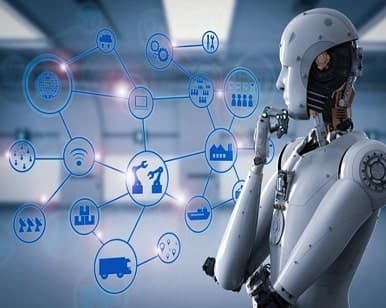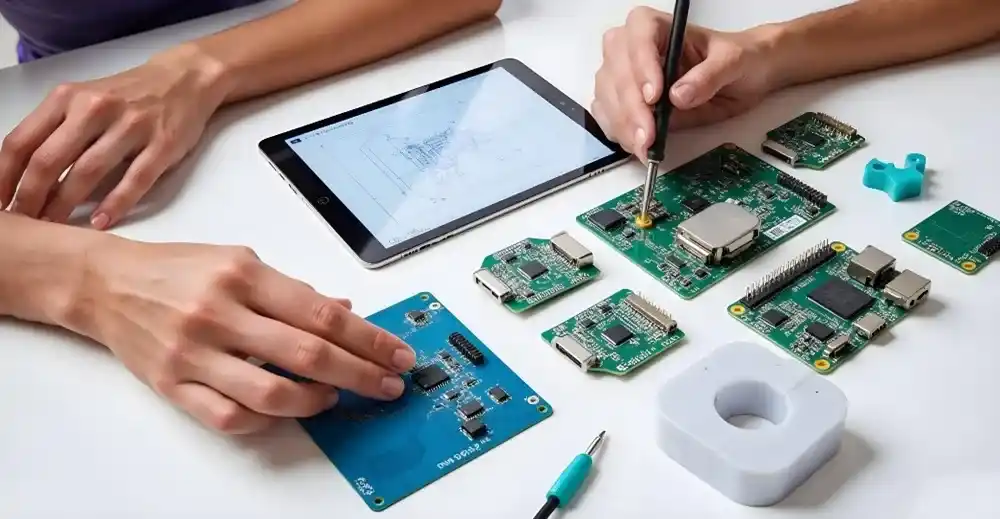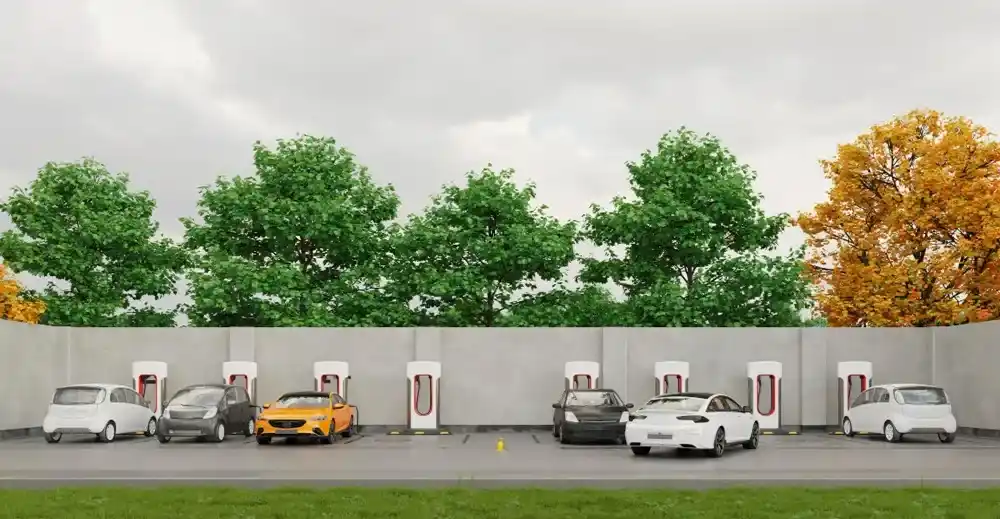Automating Business Using Robotic Process Automation

The Robotic Process Automation market was valued at US$2.039 billion in the year 2020. This market is projected to grow at a lucrative CAGR of 31.5%.
Robotic process automation (RPA) is a business process automation technology that uses metaphorical software robots or artificial intelligence/digital workforce to automate business processes.
RPA optimizes workflows, allowing companies to be more lucrative, adaptable, and responsive. It also enhances employee happiness, engagement, and productivity by eliminating monotonous activities from their working days. RPA is non-intrusive and can be implemented quickly to speed digital transformation. It's also perfect for automating procedures using outdated systems that don't have APIs, virtual desktop infrastructures (VDIs), or database access.
The growing use of artificial intelligence and cloud-based solutions for internal efficiency among SMEs is fueling market expansion. For instance, UiPath partnered with Snowflake to Power robotic process automation analytics in the cloud in October 2021
The growing deployment of SaaS, IaaS, and PaaS products for customer relationship management, cloud computing, enterprise resource management, open-source resources, cooperative robot learning, network connection, and other financial applications is also fueling the growth of the RPA market.
Many businesses are preparing to implement RPA technology software to automate various business operations in order to cut costs, conserve time and effort, and improve efficiency. RPA's capacity to simplify corporate operations at a rapid speed while providing efficiency is boosting demand and industry growth. RPA can also be used in conjunction with cognitive aid, machine learning/Artificial Intelligence, speech recognition, IoT, and other technologies to accomplish complicated tasks in a short amount of time. RPA interaction models assist a variety of industry sectors, including retail, healthcare, human resources, financial services, and many more.
Growing Internet Penetration in Emerging Countries, Along With Increased Digitization
According to the World Bank, Individuals using the Internet (% of the population) grew from 49.407 in 2018 to 56.727 in 2019. In underdeveloped nations, only around 35% of the population has access to the Internet (versus about 80 % in advanced economies). According to the World Economic Forum, Africa has experienced a substantial increase in internet users in the Democratic Republic of the Congo (DRC)—between 2019 and 2020, the country's internet user population rose by 9 million (+122 %). India has also witnessed substantial growth, with the number of internet users increasing by 128 million (+23 %) between 2019 and 2020.
RPA Innovation Is Increasing to Meet Shifting Customer Expectations
Companies in different sectors, including retail and manufacturing, are turning to RPA to reduce labour costs as labour prices continue to grow. Furthermore, by implementing robotic technology, businesses can manufacture high-quality items while removing the potential of human error. Furthermore, several industrial companies demand a high level of energy consumption and want to reduce energy costs by using robots technology, which supports the RPA market growth. Though the initial cost of robotic technology is high, it allows businesses to run their operations more effectively while reducing their overall expenditure.
The High Cost of Implementation Might Hinder the Market Growth
The cost of RPA deployment varies depending on the vendor. SMEs can pay between $4,000 and $15,000 for a single bot. On the other hand, Enterprises may need to spend up to $20 million for a complete RPA system with up to 500 robots, which will save them more than $100 million and replace over 1,000 laborforces. The cost of automated bot implementation is determined by factors such as the complexity of the bot, the time and effort spent on initial business process analysis, the initial setup and programming required, and, finally, the costs of all APIs and apps used inside a bot. While some APIs and apps are free, connecting to cloud services may incur recurring charges, which typically increase linearly with the volume of data handled. Furthermore, since RPA bots are embedded in current software applications, every upgrade to the programme may need an upgrade for the bot as well, costing additional development expenses. If software upgrades cause the RPA bots to malfunction, the customer may additionally have to pay for incident management.
Asia-Pacific Region Is Expected to Have a Prominent Market Share
The Asian-Pacific region market is projected to expand due to the increasing usage of cloud-based computing and the need for convenience. Cloud-based computing has grown significantly in popularity as internet penetration has increased, as has digitization and automation in small and medium-sized businesses. For instance, Indian Oil Corporation Ltd (IOCL) struck a five-year deal with Automation Anywhere, a global player in RPA, in September 2021 to accelerate and expand automation to promote innovation throughout its 30,000-person workforce. Furthermore, Ramssol Group Bhd (Ramssol), a leading domestic Human Capital Management (HCM) solutions and technology provider, entered into a strategic partnership with leading Artificial Intelligence Robotic Process Automation (AI-RPA) firm, Laiye, as its first authorised training partner for intelligent automation technology across Southeast Asia in October 2021 through its wholly-owned subsidiary, Rams Solution Sdn Bhd (RAMS). In 2020, YonBIP, a brand new business innovation platform, was launched by Yonyou Network Technology to expedite digital transformation and achieve long-term success for international businesses. This year, Yonyou introduced TMS Cloud, a global treasury management product, at Yonyou Hong Kong, the headquarters of the Overseas Business Unit, with the goal of providing treasury management solutions for international corporations with cross-border operations.
According to the Association for Advancing Automation, North American robot unit orders in 2019 were up 1.6 % over the same period in 2018, with 29,988 robotic units ordered. Order revenue decreased by 1.3 % in 2019, ending the year at $1.681 billion. The primary drivers of growth were a 50.5 % rise in orders from automotive OEMs and a 16.6 % increase in orders from the plastics and rubber industry. Orders to automotive component markets fell 6.6 %, while orders to all other non-automotive industries, including food and consumer products, health sciences, metals, and semiconductor/electronics, fell by single digits.
The Coronavirus Pandemic Had a Positive Effect on the Robotic Process Automation Market
COVID-19 had a negative influence on numerous industries such as retail, manufacturing, and IT and telecom were all experienced a drop in business, while healthcare organisations were overburdened by the rising number of Covid-19 cases. This unexpected situation had an impact on both back-end and front-end office operations, resulting in extended response times, staff burnout, paperwork backlog, and supply chain delays, among other things. As a result, implementing an automated solution was critical in lowering costs, providing faster customer response, and streamlining testing and reporting. Many large corporations across the world have embraced some type of RPA as they seek to digitally empower essential business processes via resilience and scalability while recalibrating human labour and manual effort. The positive impact of deploying RPA amid a pandemic-induced recession is expected to boost the demand for RPA post-pandemic.
Robotic Process Automation Market Scope:
| Report Metric | Details |
| Market size value in 2020 | US$2.039 billion |
| Growth Rate | CAGR of 31.05% during the forecast period |
| Base year | 2020 |
| Forecast period | 2021–2026 |
| Forecast Unit (Value) | USD Billion |
| Segments covered | Type, Enterprise Size, Application, Deployment, And Geography |
| Regions covered | North America, South America, Europe, Middle East and Africa, Asia Pacific |
| Companies covered | UiPath, Automation Anywhere Inc., NICE, Blue Prism, Pegasystems, KOFAX INC., NTT Advanced Technology Corporation, EdgeVerve Systems Limited, FPT Software, OnviSource, Inc., HelpSystems |
| Customization scope | Free report customization with purchase |
Get in Touch
Interested in this topic? Contact our analysts for more details.
Latest Thought Articles

Top OSAT Companies Driving Semiconductor Assembly and Test Services Worldwide
Recently
EV Charging Stations Market Outlook: Smart Charging, Fast Charging, and Regional Expansion
Recently
Future of Corporate Wellness: Global Trends and Regional Outlook
Recently
Regional Breakdown of the Mechanical Keyboard Market: Who Leads and Why?
Recently